A Bookworm’s Guide to Baltimore, the City That Reads
Long before trying on mottos like “The Greatest City in America” and, its latest straightforward attempt, “The Birthplace of the Star-Spangled Banner,” Baltimore was known as “The City that Reads.”
Packed with offbeat bookstores and storybook libraries, this well-read city has been home to countless literary greats over the years, including F. Scott Fitzgerald, H.L. Mencken, Edgar Allan Poe, Gertrude Stein, and Frederick Douglas, gifting Charm City with tons of literary gems to explore.
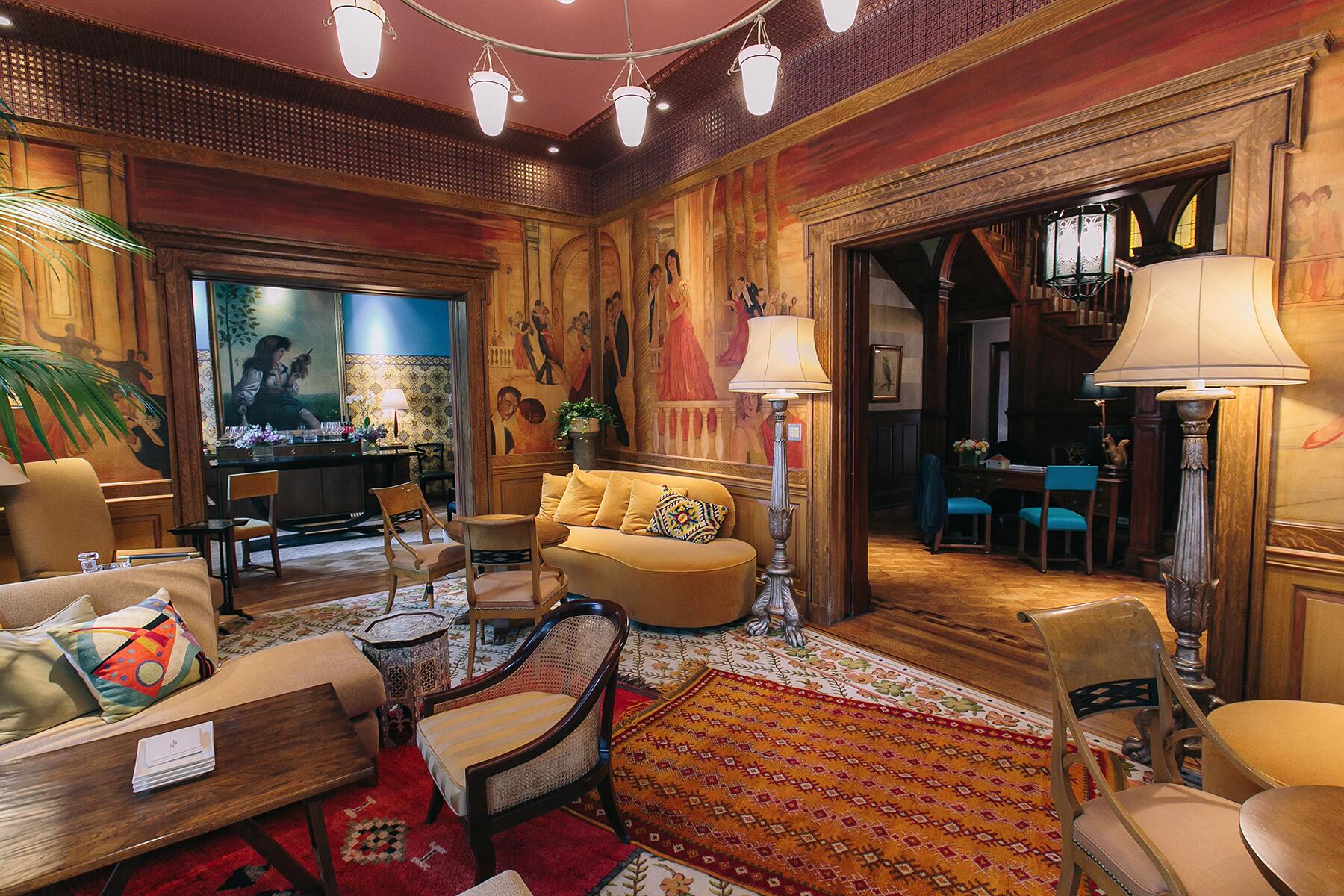
PHOTO: Courtesy of the Ivy Hotel1 OF 20
The Ivy Hotel
WHERE: Mount Vernon
Located in the literary heart of the city, this former Mount Vernon mansion was transformed into a hotel in 2015 and boasts an amazing library and an in-room reading selection that operates on a leave-one-take-one system. Curl up with classics like Of Mice and Men and Emma in the library of this 18-room boutique hotel, where the original fireplace marks the spot where the former mansion owners, the Painters, would order flowers to be sent to Edgar Allen Poe’s grave every year on his birthday.
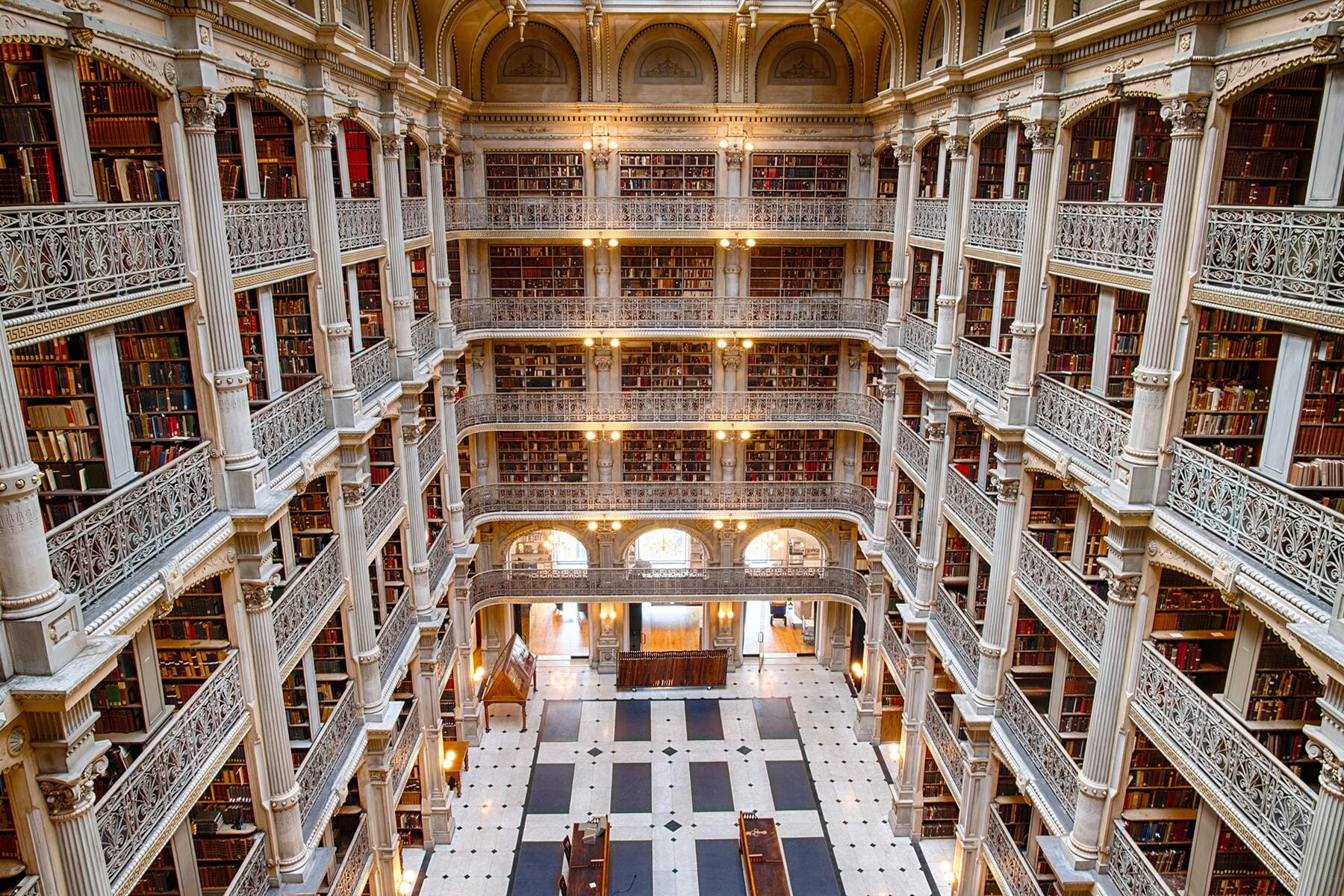
PHOTO: Izanbar/Dreamstime2 OF 20
George Peabody Library
WHERE: Mount Vernon
Located in Mount Vernon, near the Washington Monument, the George Peabody Libraryopened in 1878 and now contains more than 300,000 volumes, most from the 18th and 19thcenturies. Often described as the “cathedral of books,” this stunning public library features ornate cast-iron balconies that wrap around each of the five floors. Check out the impressive collection of H.L. Mencken’s writings, or just come to stand in the space that was said to have inspired the library in Beauty and the Beast.Continue Reading Article After Our Video

PHOTO: Jason Varney3 OF 20
Walters Art Museum
WHERE: Mount Vernon
This free public art museum tells the story of ancient civilizations through its collection of historic artifacts, but it’s the museum’s collection of rare books and manuscripts from around the world that truly draws readers in. More than 900 rare manuscripts, 1,250 first editions (including ancient texts by Aristotle and Napoleon’s actual diaries), and a section dedicated to post-1500 deluxe editions comprise the collection, recounting the history of the book over a span of more than 1,000 years.
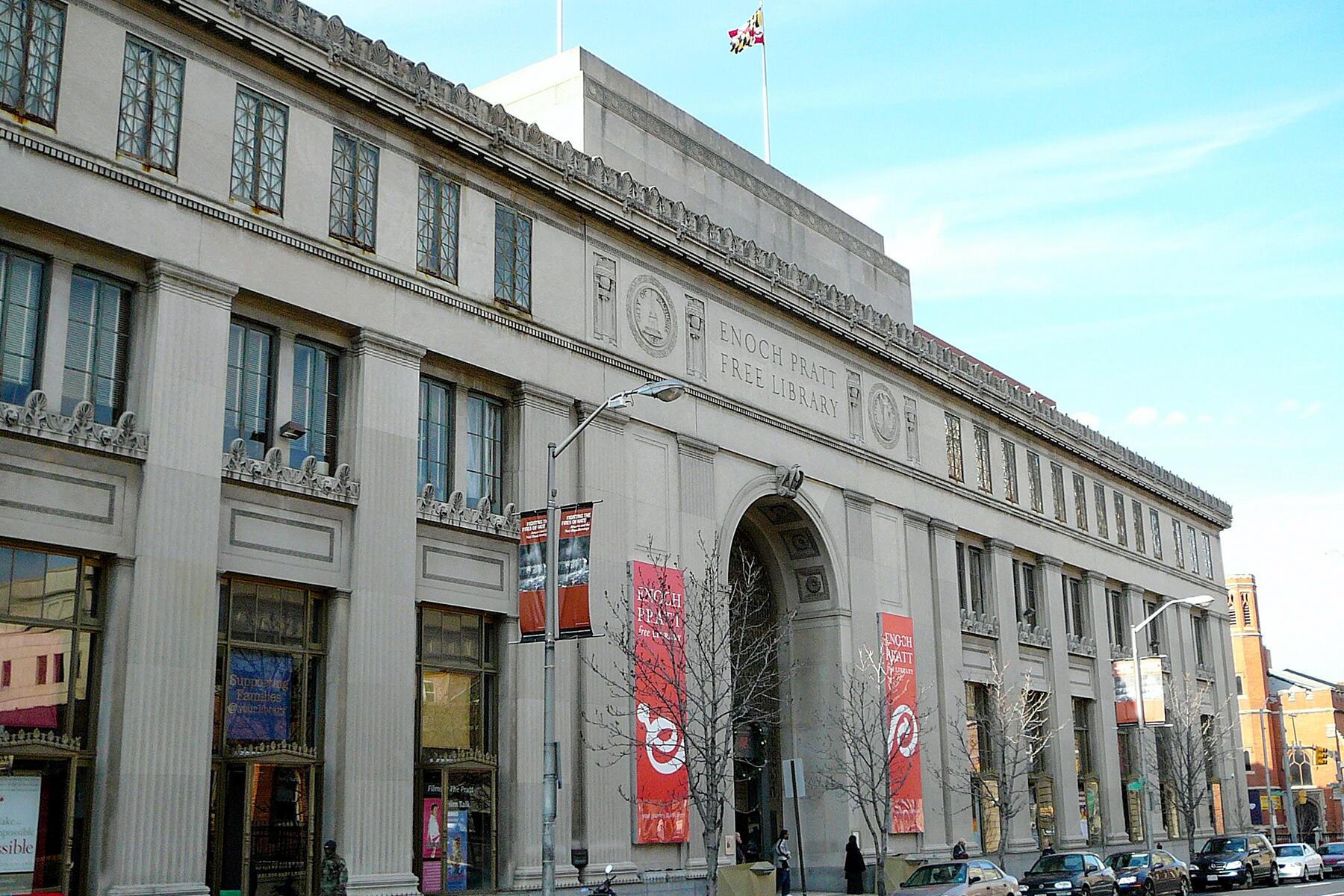
PHOTO: nf utvol [CC BY-SA 4.0]/Wikimedia Commons4 OF 20
Enoch Pratt Free Library
WHERE: Mount Vernon
This public library made headlines when it opened in 1882, becoming one of the first free lending libraries in America during a time when most books were only available for purchase. Today the library takes up almost a whole city block, where entire rooms are devoted to the writers that once called Baltimore home, including a collection of Edgar Allan Poe’s letters… and a lock of his hair.
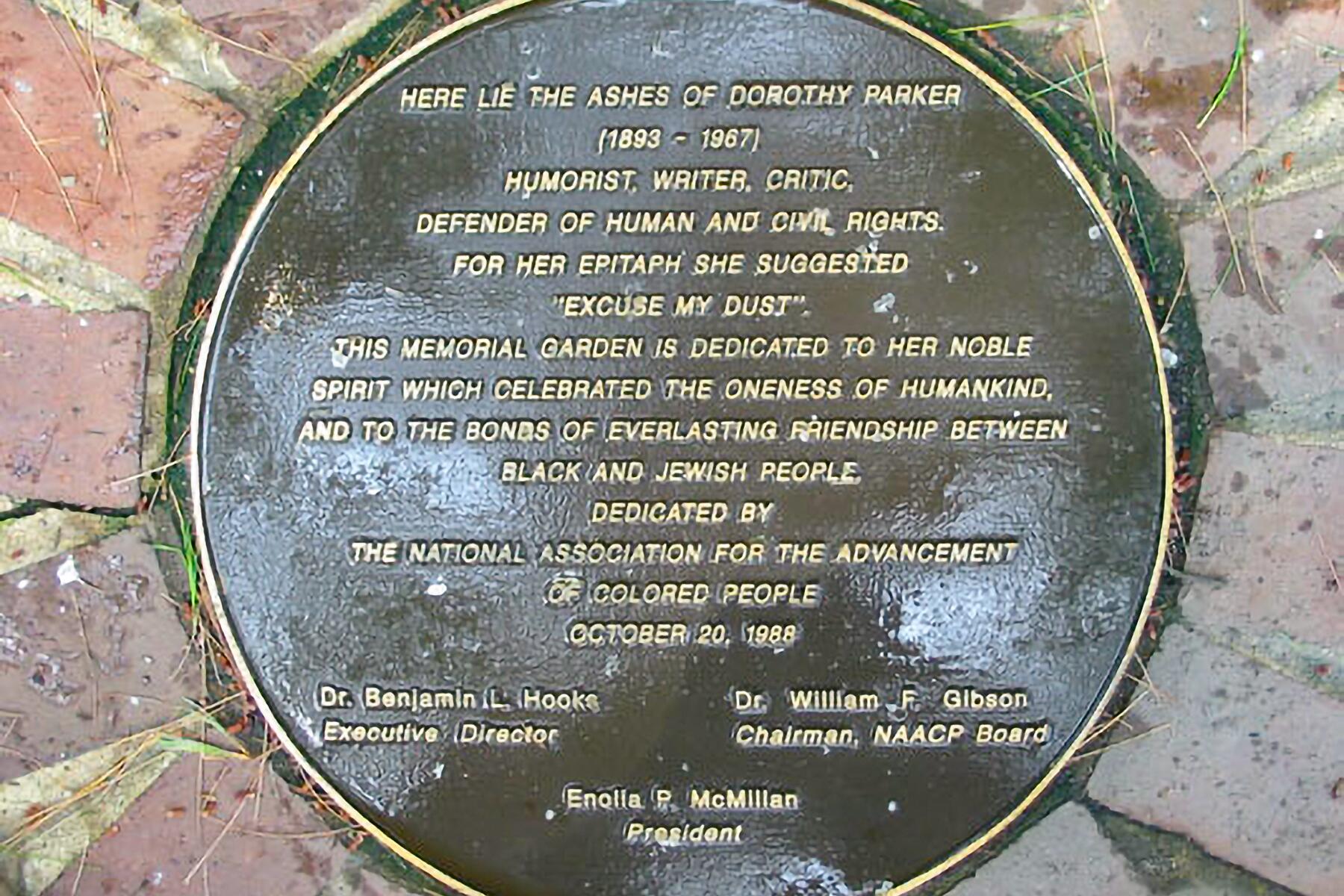
PHOTO: Courtesy of the Dorothy Parker Society, www.dorothyparker.com5 OF 20
Dorothy Parker Garden
WHERE: Northwest Baltimore
Although Dorothy Parker reportedly only visited the city of Baltimore once during her lifetime, this writer and Civil Rights activist left her entire estate to the NAACP in her will. During the early 1900s, Parker’s bylines could be found in Vanity Fair, Vogue, and The New Yorker, where her biting wit and keen satire won her the O. Henry Award in 1929 before she went on to co-write the screenplay for the 1937 adaptation of A Star Is Born. The garden lines the headquarters for the NAACP, where it acts as a memorial to Parker’s legacy as well as her final resting place.

PHOTO: Jon Bilous/Dreamstime6 OF 20
Emmanuel Episcopal Church
WHERE: Mount Vernon
Meetings of the Poetry Society of Maryland were frequently held at the Emmanuel Episcopal Church in the early 1900s. It was here where Edna St. Vincent Millay took to the pulpit numerous times to read her own works to the members of the society. Not only was Millay the first woman to receive a Pulitzer Prize for poetry, but she frequently challenged traditional gender roles and became known as “the embodiment of the liberated woman of the 1920s.”
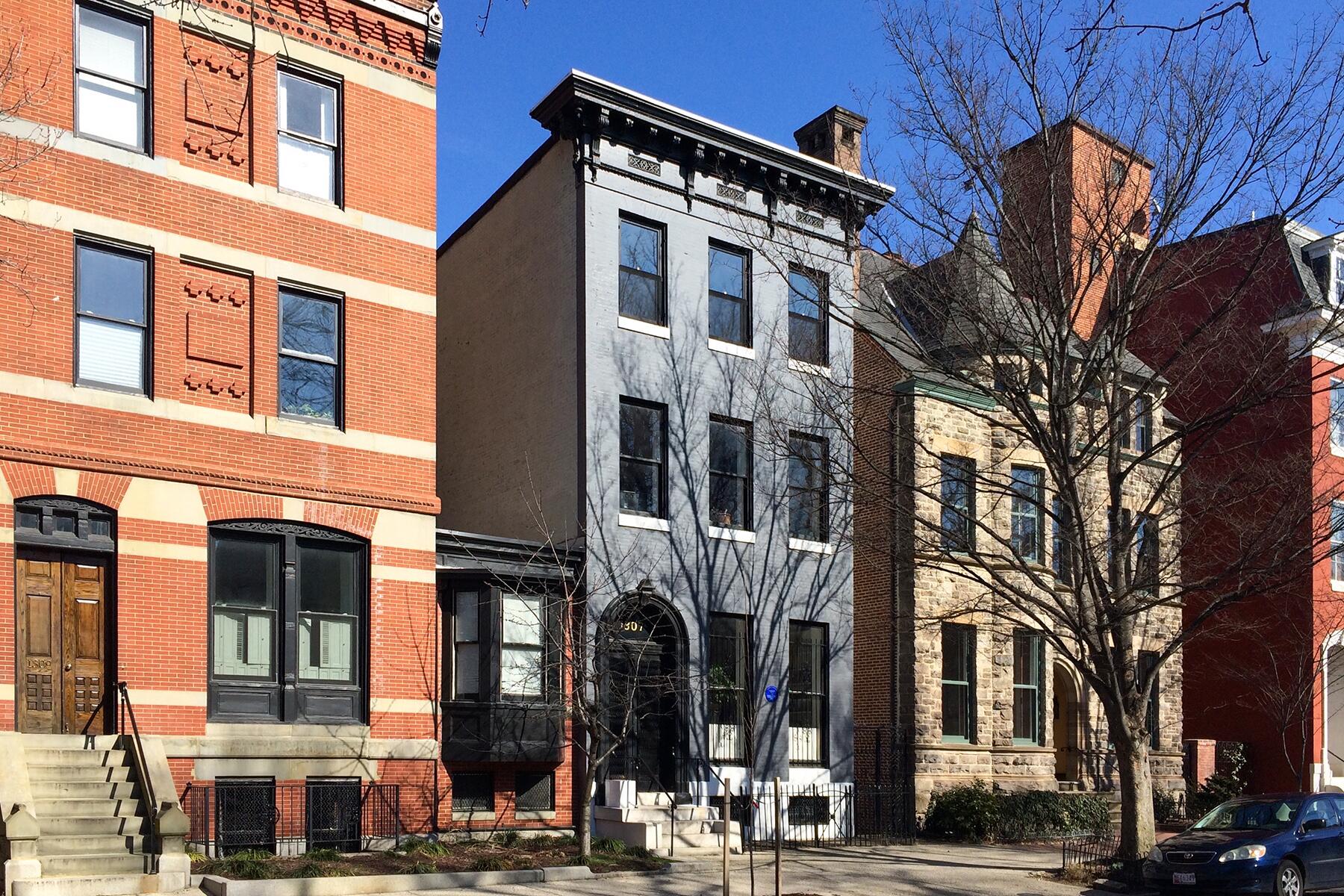
PHOTO: Baltimore Heritage from Baltimore, MD, USA [CC0]/Wikimedia Commons7 OF 20
F. Scott Fitzgerald’s House
WHERE: Bolton Hill Historic District
Although this four-bedroom, four-bath townhouse remains a private residence (i.e., not open to the public), a blue historic plaque marks the significance of this home’s former residents. Writer F. Scott Fitzgerald lived at this home on 1307 Park Avenue with his wife and daughter during his tumultuous time in Baltimore. It was the last home he and Zelda shared, although Zelda spent her weekdays hospitalized nearby for her mental illness.

PHOTO: Smallbones [CC0]/Wikimedia Commons8 OF 20
Gertrude Stein’s House
WHERE: Mount Vernon
Stein landed in Baltimore at the age of 18 and continued to call the city her “place of domicile” long after her departure a decade later. She lived with her brother Leo at 215 East Biddle Street, where marbled front steps led down to the streets and personalities that would shape both her writings and her lifestyle choices.
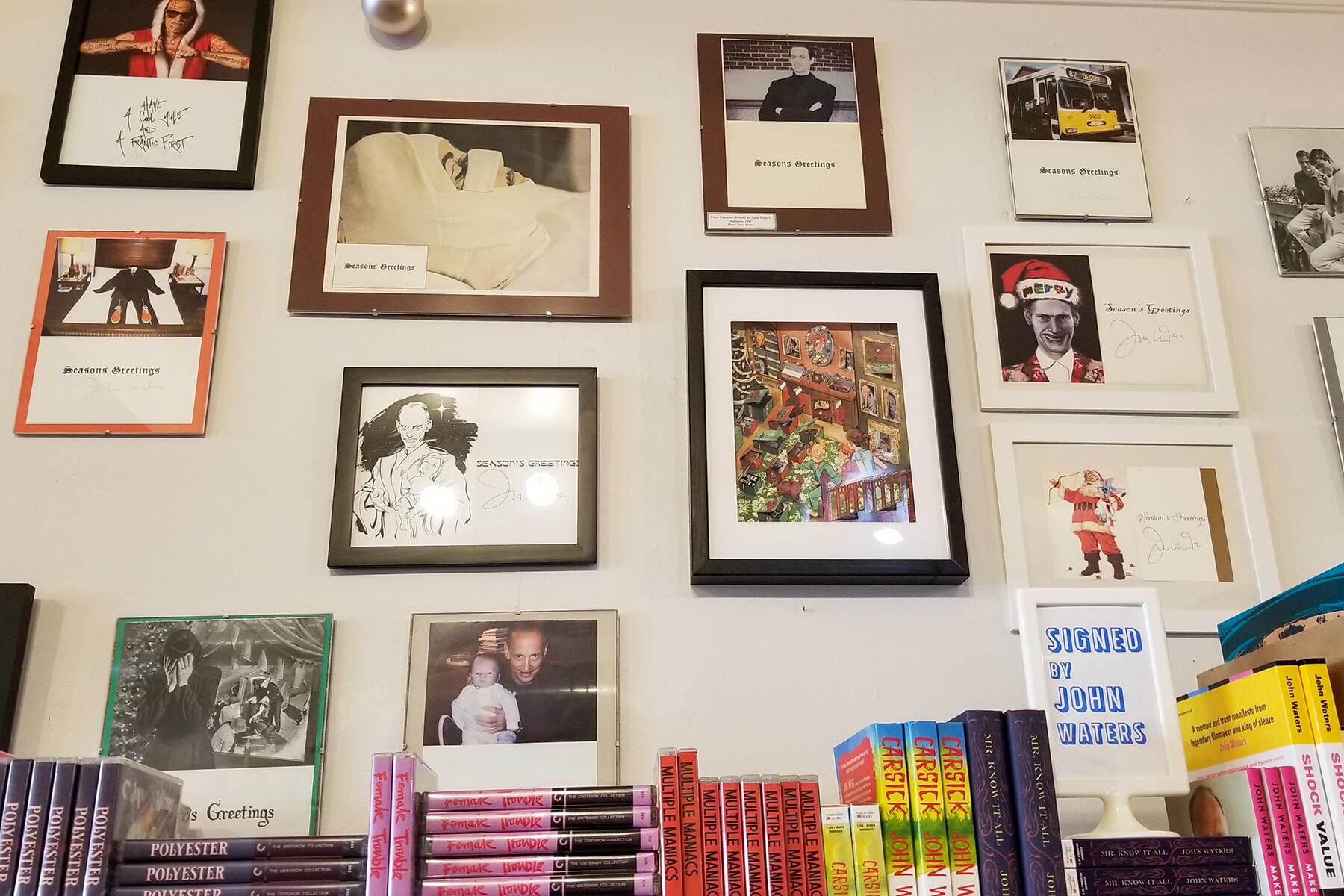
PHOTO: Rachel Whang/AtomicBooks9 OF 20
Atomic Books
WHERE: Hampden
This quirky bookstore sells everything from hand-bound minicomics to lowbrow art books, with an especially interesting section of “books for strange children.” Stock up on newly released fiction and vintage vinyl, or just hang around the shop in hopes of running into John Waters, as Atomic Books is where the film director, actor, and writer receives his fan mail.
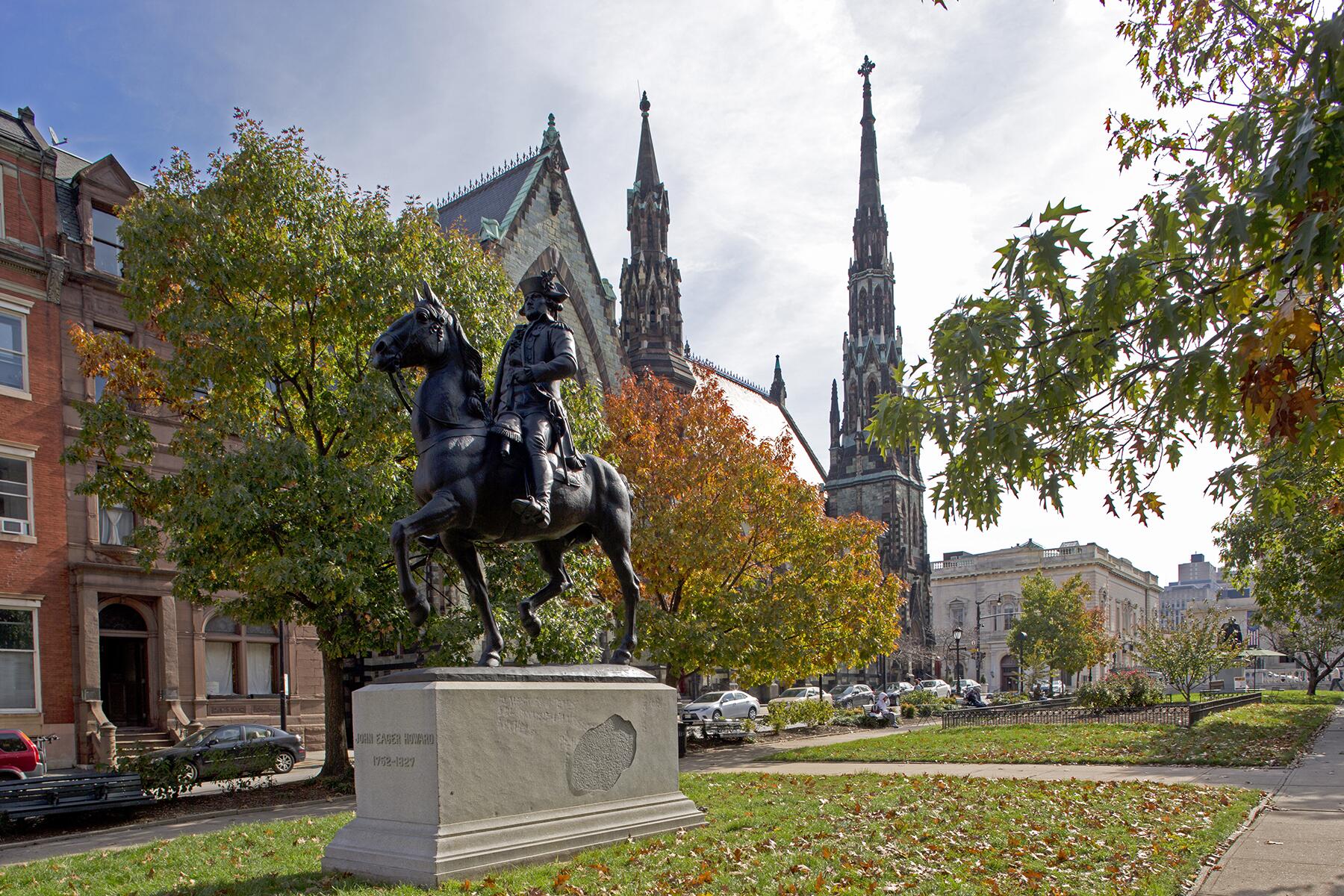
PHOTO: Courtesy of Visit Baltimore10 OF 20
Mount Vernon Place United Methodist Church
WHERE: Mount Vernon
Although the home no longer sits on this site, a plaque marks the spot where “The Star-Spangled Banner” writer Francis Scott Key once lived while in Baltimore. The church opened in 1872, on the site of the former mansion owned by Charles Howard and his wife, Elizabeth Phoebe Key, daughter of Francis Scott Key. Key died January 11, 1843, in his daughter’s home, and the National Historic Register now honors his legacy with a plaque for the site’s significance on the church’s southern wall.
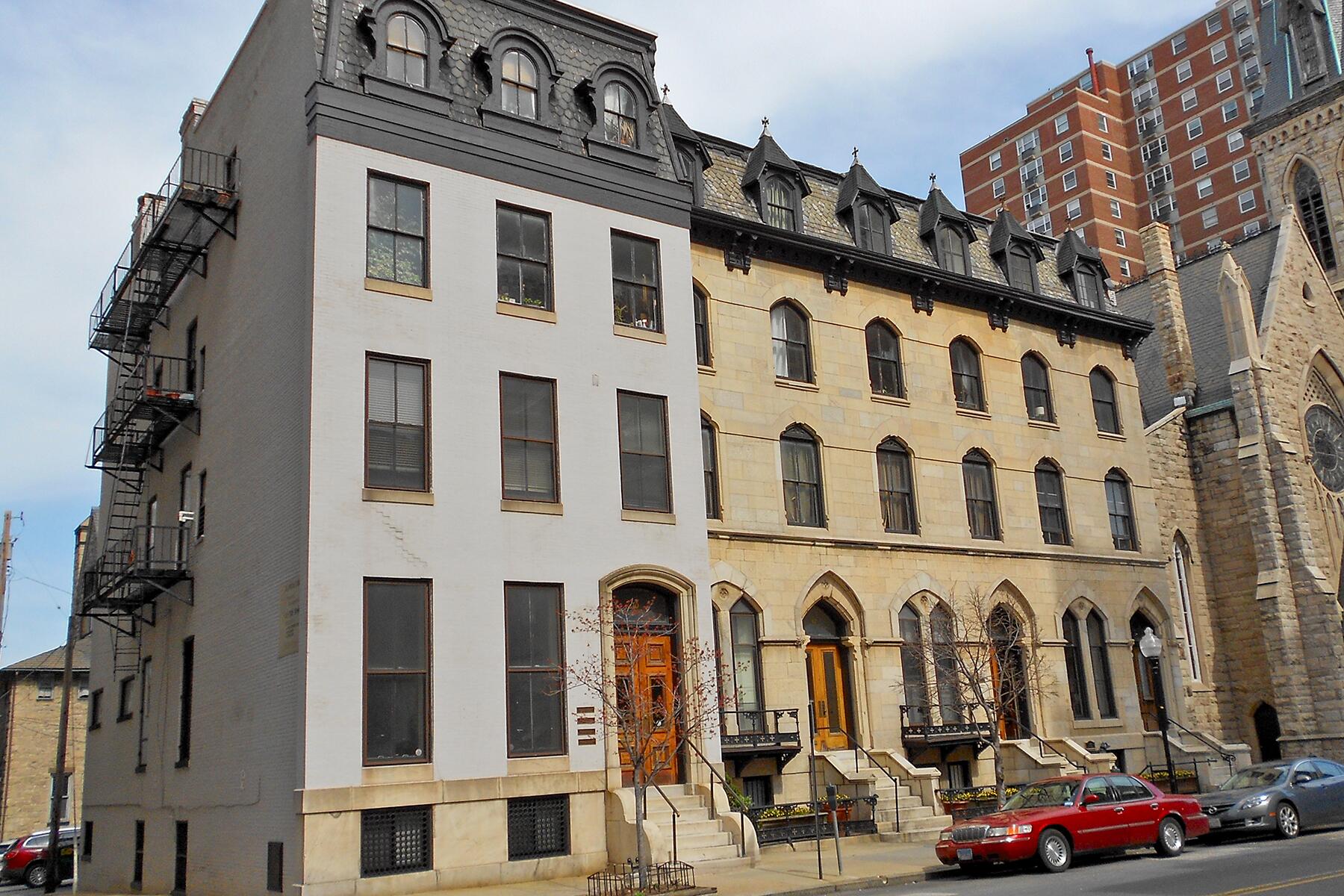
PHOTO: Smallbones [CC0]/Wikimedia Commons11 OF 20
Emily Post’s House
WHERE: Mount Vernon
Although she lived most of her life in Manhattan, legendary propriety expert Emily Post was born in Baltimore and grew up on the outskirts of Mount Vernon at 14 E. Chase Street, attending church at the corner of Chase and St. Paul. She went on to become the leading authority on social correct behavior, and once wrote that “You know I am by birth and in heart a Baltimorean.”

PHOTO: Baltimore Heritage [CC0 1.0]/Flickr12 OF 20
H.L. Mencken House
WHERE: Union Square
Known as “the sage of Baltimore,” H.L. Mencken was born and died in his beloved city, living out 67 of those years in the same house. He was three years old when his parents brought him to 1524 Hollins Street, where parquet floors and three stories laid the foundation for this prolific writer’s best work, most of which appeared in The Baltimore Sun and The Evening Sun. The house sat abandoned for 20 years but will reopen in 2020 as a museum, with sections dedicated to the writer’s belongings and exhibits on how his ideas fit within a modern landscape.

PHOTO: Ken Stanek Photography13 OF 20
Fort McHenry National Monument and Historic Shrine
WHERE: Locust Point
This historic site was not only a turning point in the War of 1812, but it was the spot that inspired our nation’s National Anthem. Francis Scott Key was on a ship in the harbor as he watched the Battle of Baltimore at Fort McHenry, but it was in the morning after the battle when Key saw the American flag rising over the fort, that this attorney and amateur poet was inspired to write down the verses that would eventually become “The Star-Spangled Banner.”
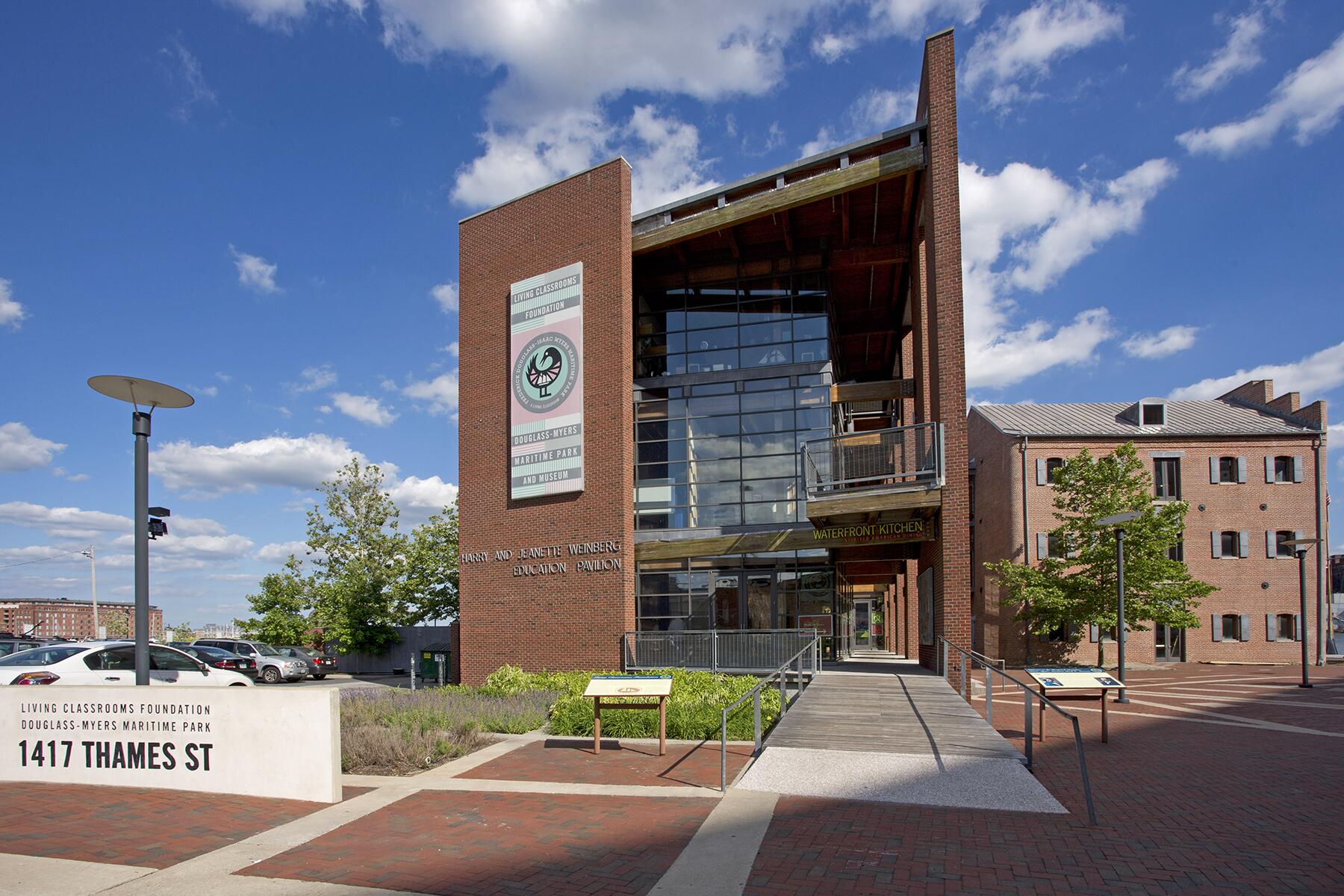
PHOTO: Courtesy of Visit Baltimore14 OF 20
The Frederick Douglass Tour
WHERE: Fells Point
Born into slavery in Maryland, Frederick Douglass grew up in Baltimore, learning to read while working in the shipyards at Fell’s Point before escaping to freedom in 1838. His ideas for reformation inspired the nation, acting as the advisor to President Lincoln, and his autobiography Narrative of the Life of Frederick Douglass, an American Slave, sold five thousand copies within four months of publication. Follow in his footsteps with a walking tour of the city to see the places that helped shape his ideals.
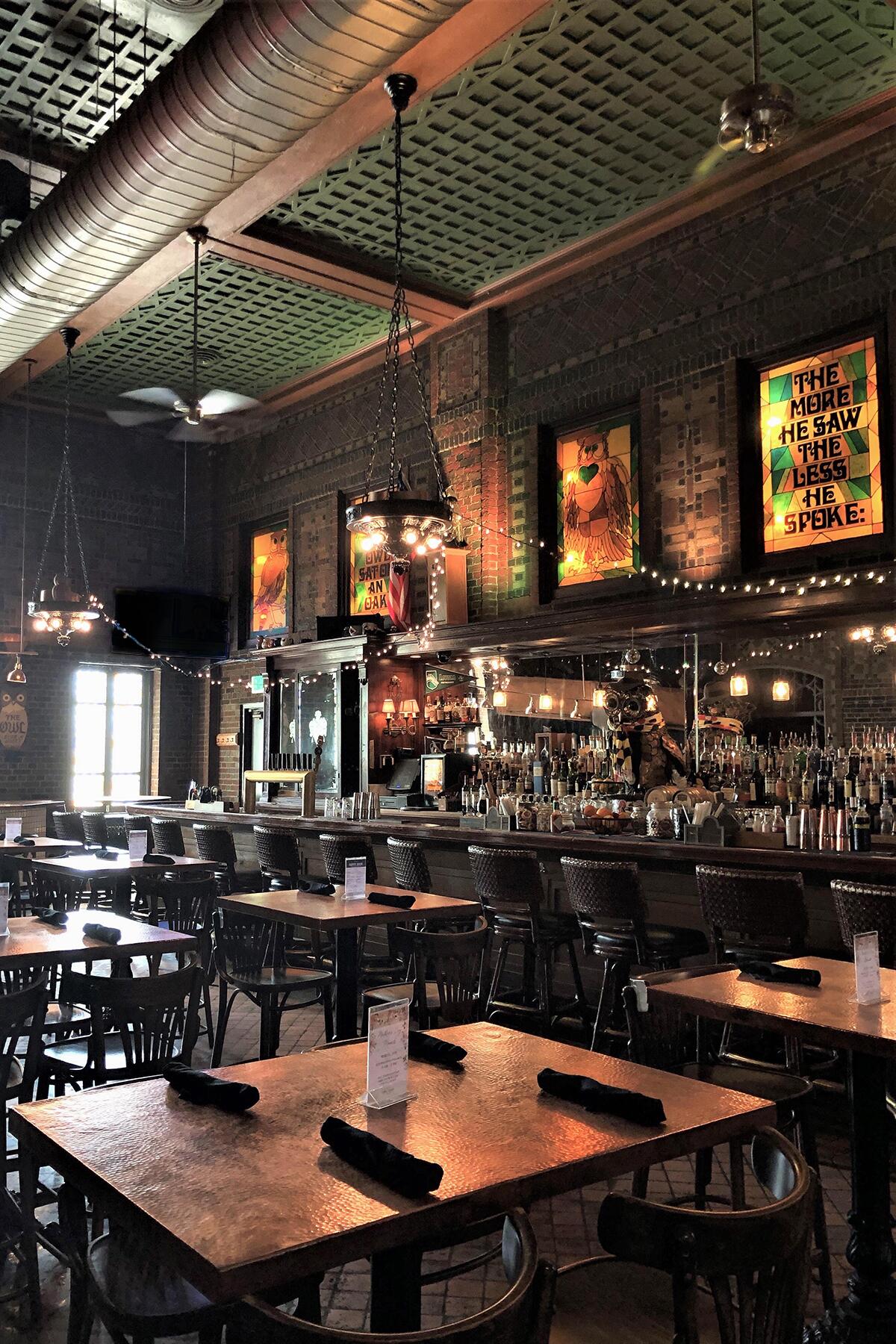
PHOTO: Courtesy of Belvedere & Co.15 OF 20
The Owl Bar
WHERE: Mount Vernon
Tucked discreetly in the back of the Belvedere Hotel, this historic bar was once a speakeasy during Prohibition, where the owl’s eyes gave patrons the “all clear” with a simple blink when the bar was safe from police raids. F. Scott Fitzgerald and H.L. Mencken were just a few of the writers who frequented the Owl Bar over the years.

PHOTO: Justin Tsucalas16 OF 20
The Edgar Allan Poe House and Museum
WHERE: Downtown West
Writer Edgar Allan Poe lived in a modest brick house at 203 Amity Street from 1833-1835, where he wrote many of his early short stories and poems, including Morella, To Elizabeth, and The Visionary. The house has been refurbished and is a National Historic Landmark, where visitors are able to visit Thursdays through Sundays from 11 am to 4 pm.
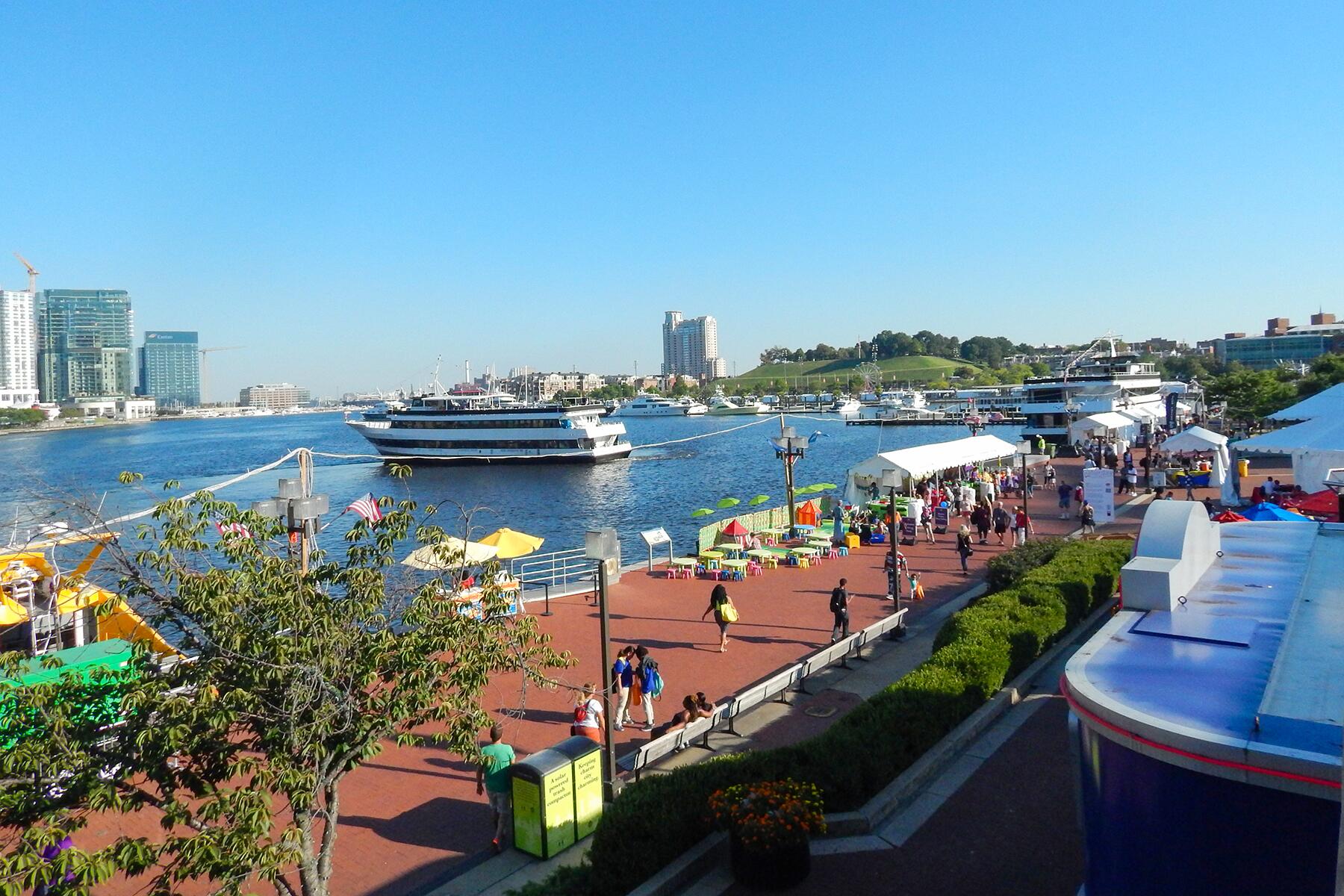
PHOTO: David Robert Crews from Baltimore, Md., USA [CC BY-SA 2.0]/Wikimedia Commons17 OF 20
Baltimore Book Festival
WHERE: Inner Harbor
The first festival was held in 1995, but the tradition continues each year as the Inner Harbor turns into a roving book store during the first week of November for the Baltimore Book Festival. Authors from around the world come for appearances, readings, book signings, and just to stroll around the waterfront to explore the booths from exhibitors and booksellers. Plan ahead to attend workshops and panel discussions, and stick around for live music and the delicious cookbook demos.
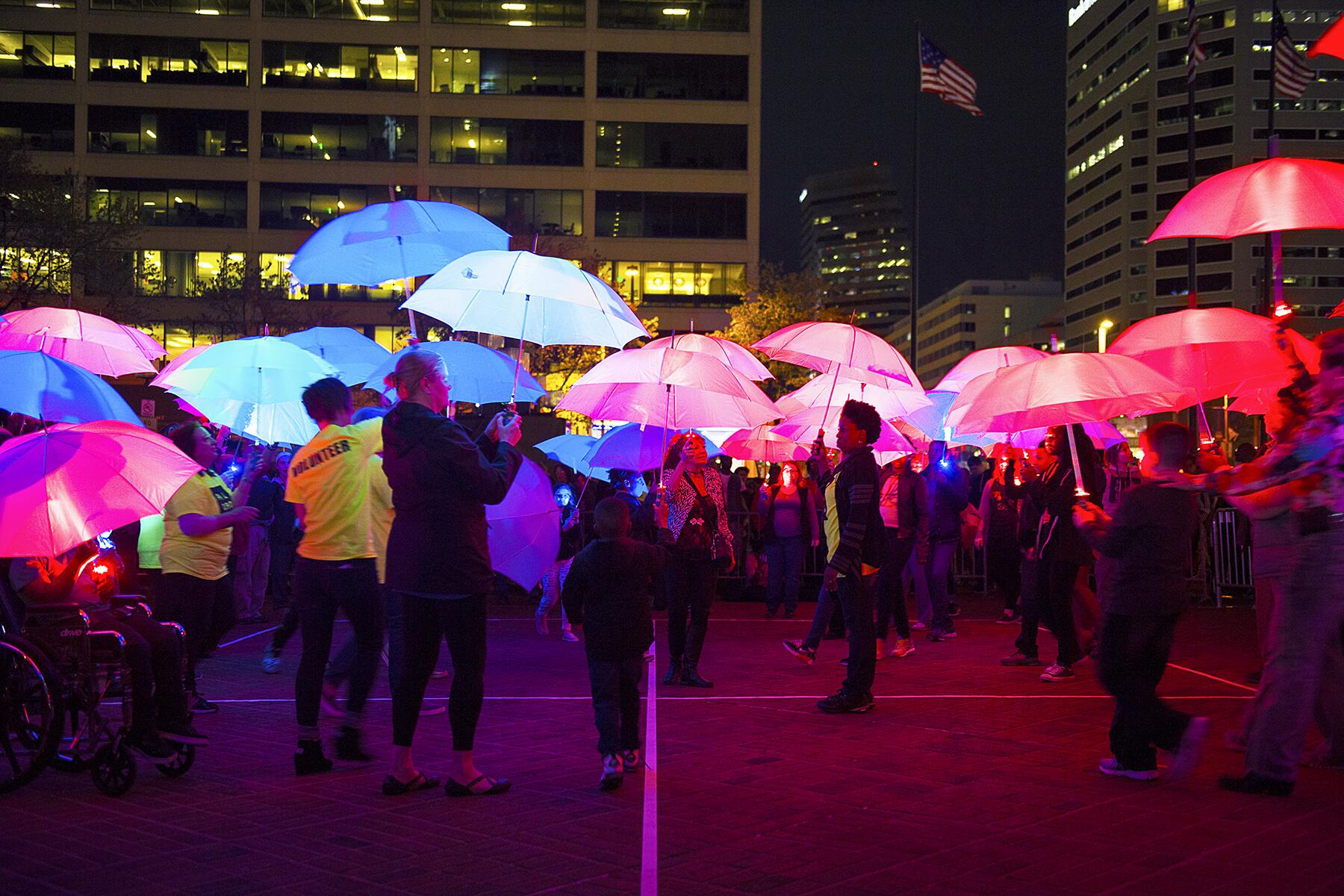
PHOTO: Courtesy of Visit Baltimore18 OF 20
Baltimore CityLit Festival
WHERE: Mount Vernon
This celebration for all things literary arts lasts just one day each year in April. The CityLit Project gathers writers and readers for mini sessions with Pulitzer Prize-winning authors and National Book Award winners, but the main event is the Literary Marketplace. The marketplace is open to the public, and celebrates self-published authors, small presses, literary journals, and organizations. Preregister for the Master Classes and editorial critique sessions to take full advantage of this festival’s unreal lineup of literary talent.
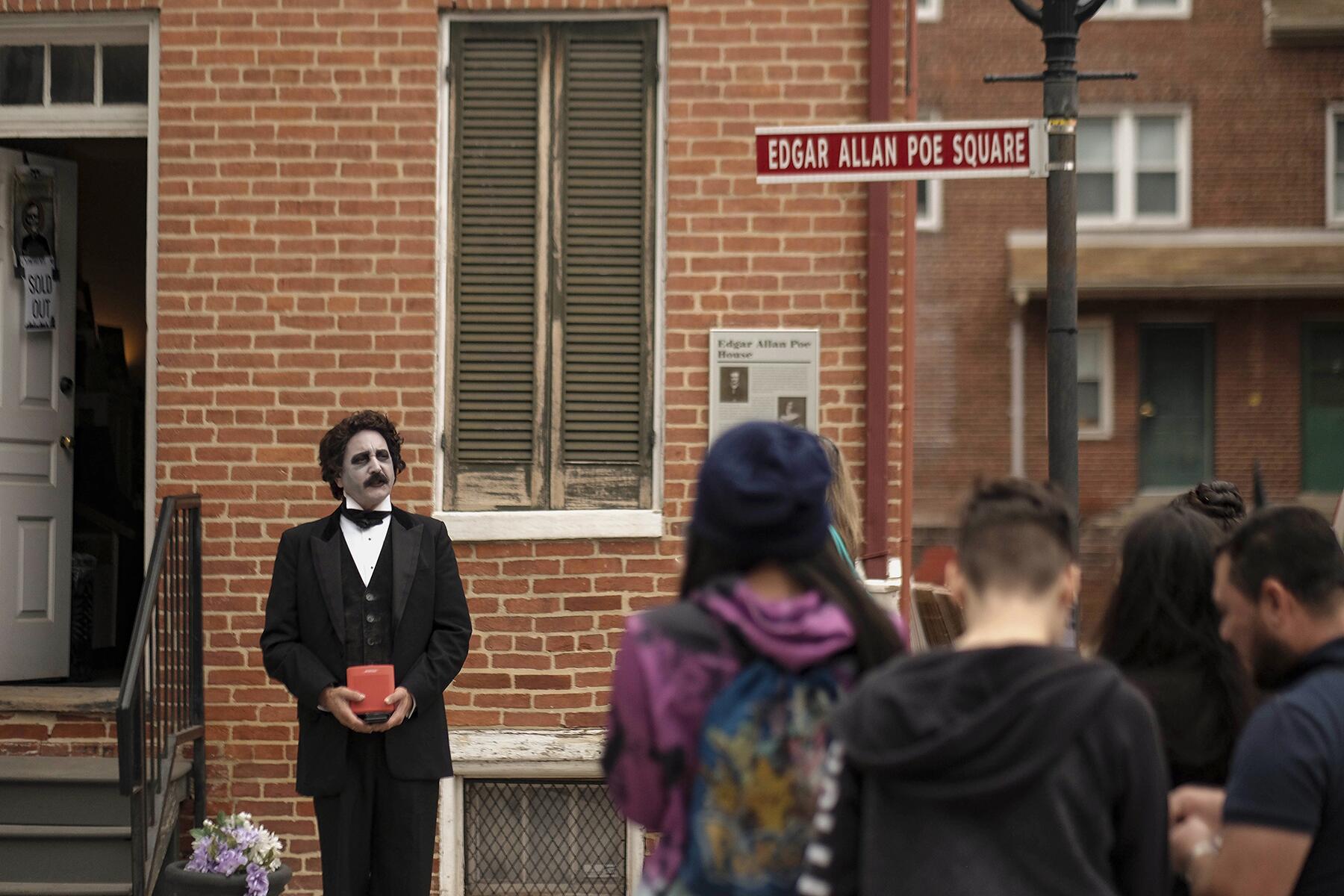
PHOTO: Courtesy Poe Baltimore and Gabriella Demczuk19 OF 20
International Edgar Allan Poe Festival
WHERE: Downtown West
This festival coincides with the day that Edgar Allan Poe passed on. If that’s not macabre enough, there’s also a gothic ball and a funeral reenactment that fill this two-day festival’s schedule. The festival is dedicated to all things Poe, but live performances, poetry readings, concessions, and booksellers keep the spirits high leading up to the awards ceremony honoring the next generation of writers and artists continuing in Poe’s legacy.

PHOTO: Courtesy of The Book Thing20 OF 20
The Book Thing
WHERE: Abell
The motto of this free-to-all bookstore is to “put unwanted books into the hands of those who want them.” The bookstore is located near the campus of Johns Hopkins University and allows patrons the chance to walk out with as many books as they want without paying a cent. All books are marked “Not for Resale” upon arrival, and the only catch is that you can only take up to 150,000 books per person, per day … but even that is open to negotiation for organizations requiring a large number of books.

